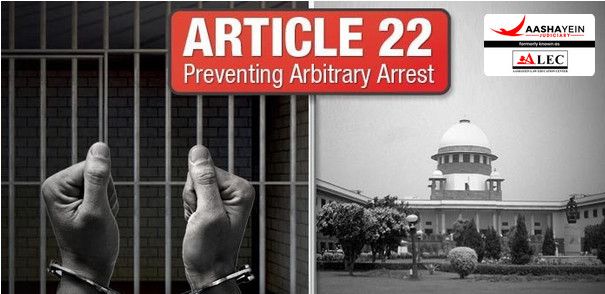Bench of Justice Abhay S Oka and Justice N Kotiswar Singh
Introduction
The Supreme Court, in this case, ruled that an arrest is illegal if the arrested person is not informed of the grounds for arrest as mandated under Article 22(1) of the Indian Constitution. The Court held that in such cases, the accused must be granted bail despite statutory restrictions. It further emphasized that magistrates must ensure compliance with constitutional safeguards during remand proceedings.
Facts of the Case
The petitioner, Vihaan Kumar, was accused of fraud by Games Kraft Technologies' CEO. He was arrested by the Haryana police but alleged that he was not informed of the reasons for his arrest. Kumar filed a writ petition in the Punjab & Haryana High Court, challenging the legality of his arrest and requesting CCTV footage of his detention. The High Court rejected the petition, holding that the police followed proper procedure and that the 24-hour rule was not violated. Dissatisfied, Kumar appealed to the Supreme Court, claiming a violation of his fundamental rights under Article 22(1) of the Constitution and Section 50 of the CrPC. The Supreme Court ruled in his favor, overturning the High Court’s decision and ordering his immediate release.
Issues Before the Court
- Weather an arrest is illegal depends on whether the accused was informed of the arrest grounds.
- Weather failing to inform the accused of the arrest grounds violates Article 22(1) of the Constitution is a crucial legal question.
- Weather the Court can grant bail despite statutory restrictions depends on the existence of a constitutional violation.
- Weather the magistrate ensures compliance with Article 22(1) during remand is essential to upholding legal safeguards.
You can also read the Blog by visiting [Blog].
For more information, visit [Aashayein Enquiry Section]
Contentions of the Petitioner
He was not informed of the reasons for his arrest, violating Article 22(1). The High Court erred in accepting the State's timeline without verifying whether his constitutional rights were upheld. CCTV footage should have been examined to determine if the procedural safeguards were followed. The arrest was illegal and should be set aside, with an immediate grant of bail.
Contentions of the Respondent
The arrest was lawful, and all due procedures were followed. The grounds of arrest were communicated, and there was no violation of Article 22(1). The High Court correctly dismissed the petition, relying on the police’s submission of events. The petitioner was arrested as per statutory provisions, and granting bail was not justified.
Court’s Analysis
The Supreme Court reaffirmed that an arrested person must be informed of the reasons for arrest in a language they understand. If this is not done, the arrest is illegal. Justice Abhay S. Oka emphasized that when an accused claims a violation of Article 22(1), the burden shifts to the investigating officer to prove compliance. The Court ruled that magistrates must verify compliance before granting remand. If a violation is found, they must order immediate release. Justice N. Kotiswar Singh added that failure to inform the accused’s relatives or nominated persons under Section 50 of the CrPC (Now Sec 47 of BNSS,2023) also renders the arrest illegal. Even if statutory restrictions exist, constitutional violations override such restrictions, and courts can grant bail in such cases.
Conclusion
The Supreme Court overturned the High Court’s decision and ruled that Vihaan Kumar’s arrest was illegal due to non-compliance with Article 22(1). It ordered his immediate release and emphasized that courts must protect personal liberty from unconstitutional arrests. The ruling states that bail must be granted when fundamental rights are violated, regardless of statutory limitations.
Notes:
Article 22(1), Constitution of India – Right of an arrested person to be informed of the grounds for arrest.
Article 21, Constitution of India – Right to life and personal liberty.
Section 50, CrPC (Now Sec 47 of BNSS,2023) – Duty of police to inform a relative or friend of the accused about the arrest and place of detention.

